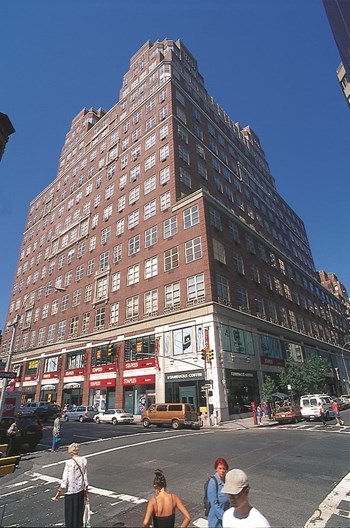
In the typical suburban condo development, one must go to another location to shop— maybe to the mini-mall, or the big box store down the road. But in New York City co-ops and condos, stores are often found on the ground floor—supermarkets, restaurants, drugstores, clothing stores and more. Sometimes you’ll also find doctor’s or dentist’s offices.
The relationship between the co-op or condo and the ground-floor business tenant is a complicated one. Having these stores on the ground floor is often seen as a plus by shareholders or unit owners. But for management, it can raise questions. There can be a lot to unpack from the standpoint of insurance, liability, and other concerns.
Desirable and Undesirable
What kind of business is the 'ideal' commercial tenant? Answers vary. Carl Cesarano, CPA, of the Floral Park-based accounting firm Cesarano & Khan, PC, says that bars and restaurants can raise issues of crowds, noise, rodents, insects, and illuminated signs that may shine into residential units. And tenants that use chemicals that could be unsafe, such as dry cleaners, and have other environmental issues “would certainly be less desirable.”
Many people feel that bars in particular are problematic because they’re open late at night, a factor that could disturb residents.
Of course, these are not a hard and fast rule for everybody—a quick look around the city reveals plenty of residential buildings with restaurants or diners on the ground floor. As to which of these buildings are co-ops/condos and which are rentals, doing such a survey, of course, would be a huge undertaking outside the bounds of this article.
Manhattan commercial real estate broker Michael Kramer talks about some of the types of commercial tenants he feels are desirable in a residential building. One is a non-food “national” tenant, such as a bank, “which will give you peace of mind and a steady wire deposit each month into your bank account.” Another is a local niche business, such as factory outlet designer or a local food grower, which would add to the quality of life in a neighborhood.
Insurance professional Jim Sutton, of the Jim Sutton Agency in East Islip, answers the question in terms of business management. “You would want a tenant that would have good management skills in operating this location with safety in mind and with good housekeeping. Neat, clean and on the job when it comes to running a business.”
What Kind of Insurance?
What kind of insurance do condos and co-ops need if they have commercial tenants? Our experts have several answers.
Edward Mackoul, president of the New York and New Jersey–based insurance firm Mackoul & Associates says, “There is no special insurance the co-op or condominium needs to have, but the commercial space should be required to maintain their own general liability insurance and name the co-op or condominium as an additional insured on their policy. There should be a lease agreement or other contract stating that it is required.”
“Typically the commercial tenant obtains the insurance that complies with the specifications of the coop/condo’s requirements,” real estate attorney Adam Leitman Bailey, Esq., who heads the law firm Adam Leitman Bailey, P.C., adds. “The co-op/condo requires that it be a named in the insurance policy. The co-op/condo requires a certain amount of insurance and specific types of insurance in case of a fire or liability.”
According to Kramer, in his lease provisions, “We require our tenants to be fully insured and `hold harmless’ their landlord. `Insurance costs’ can mean all-risk property insurance in an amount of the full replacement cost of the occupied tenant space and its fixtures, comprehensive public liability insurance (in an amount reasonably determined by landlord), rental value (rental loss) insurance (in an amount equal to 100% of the annual base rental and all additional rent for the building) boiler insurance (to the extent applicable) for the building and such other types of insurance as the landlord shall reasonably require.”
High-Risk Tenants
How does a higher-risk tenant on the premises, such as a co-op or condo, affect a co-op or condo’s insurance? Several insurance professionals asked by The Cooperator replied that a higher-risk tenant may restrict the number of insurance companies who are willing to write the insurance, which will in all probability make the premium higher.
Kramer says that because there is always a possibility that businesses such as restaurants and light manufacturing, which are governed by city codes and need permits, may have to close temporarily in order to address violations, comprehensive public liability and rental value insurance coverage must be adequate.
What happens if the co-op or condo building is damaged as a result of a fire or other mishap in the tenant’s business—say, a fire in a restaurant’s ventilation system?
Mackoul says that in such a case, having additional insured status under the tenant’s policy should put the burden of claim on the tenant’s insurance company rather than the building’s insurance company.
Bailey adds that there’s a “bonus if the condo or co-op requires the commercial tenant to hire the same insurer as the building because then they cannot fight over whether to cover the incident.”
Once the Tenant is In
So far, we’ve just talked about the insurance needs of the building or development. But what about the needs of the commercial tenant itself? How is this affected when a business is within a residential building vs. being in its own building or in a commercial strip?
Sutton says a commercial tenant’s insurance needs changes very little from renting space in an all-commercial building, such as a strip mall, to renting space in a residential building. Indeed, he says, the commercial building or mall may put more demands on the business as far as liability insurance coverage is concerned.
Once the commercial tenant is in a residential building, experts say, it’s up to the condo or co-op board or manager to decide the appropriate insurance coverage for that tenant—with the assistance of the insurance broker, attorney and/or management company.
Another important issue is what type of insurance information the business tenant needs to provide to a building’s board and legal professionals before signing a lease.
The board, says Bailey, should ask for a certificate of insurance and the contract demonstrating proof that the amount of coverage the board requires in the lease has been obtained.
“Remember that the carrier may not write the policy until the lease is in place, so careful drafting of the lease will allow the board to terminate the lease for non-compliance,” he says.
Mackoul offers some numbers: “At the very least, they [the commercial business] should maintain general liability in the amount of $1 million per occurrence with a $2 million aggregate.”
The Manager’s Role
In a mixed-use building that contains both resident shareholders/unit owners and commercial tenants, the manager acts as an intermediary between all owners and/or tenants, just like he or she does in a totally residential building.
The manager or management company also should be prepared to offer their expertise about insurance, city codes and regulations, alterations and other matters to the commercial tenants, and should always be accessible.
Sutton adds that “the building manager plays a significant role in making sure the business is operating in a safe manner so losses are minimized. Paperwork must be obtained showing that the correct insurance is in place. Vigilance is maintained in checking on the business as often as possible to correct any problems or stop any inappropriate behavior from continuing.”
Attorney Stephen Lasser, Esq., a partner with the law firm of Barton LLP in Manhattan, points out that the manager’s role also becomes different when the commercial tenant is actually a tenant of one particular condo unit owner, or a subtenant of an overall commercial tenant, rather than a tenant of the building itself. (There are cases where a building rents out space to a commercial developer, who then in turn finds the actual retail tenants.)
Most of the time, when the business is a tenant of the condo/co-op building itself, the manager will have to deal with repair issues, rent collections and lease renewals, just like a manager does in a residential rental building. But when a building’s commercial space is owned by another entity, then leased to the store or business, the manager will have less of a role.
When Insurance Lapses
Finally, let’s examine what happens if a commercial tenant’s insurance lapses, and then there’s an accident or incident in which the co-op/condo building or its contents are damaged.
Professionals agree that the business’s lease should specify that the business must give notice to the board or managing agent before ending the policy. Bailey says this is usually 30 days, while Sutton recommends a 60-day notice of cancellation.
If there is no current insurance, says Bailey, either the commercial tenant or the building itself “may be on the hook for monies due and damages.”
And when the association or building must deal with the loss, its rates may go up at the next renewal.
For all these reasons, it’s important for the board or management to keep on top of the commercial tenant and to make sure its insurance is up to date and inclusive.
Thankfully, experts—insurance brokers, accountants, attorneys, condo and co-op organizations, and the managers themselves—are available to help buildings and developments deal with their commercial tenants. With the right type of management, a condo or co-op can find that having retail or commercial businesses located right inside their building is a convenience they can’t do without.
Raanan Geberer is a freelance writer and a frequent contributor to The Cooperator.









Leave a Comment